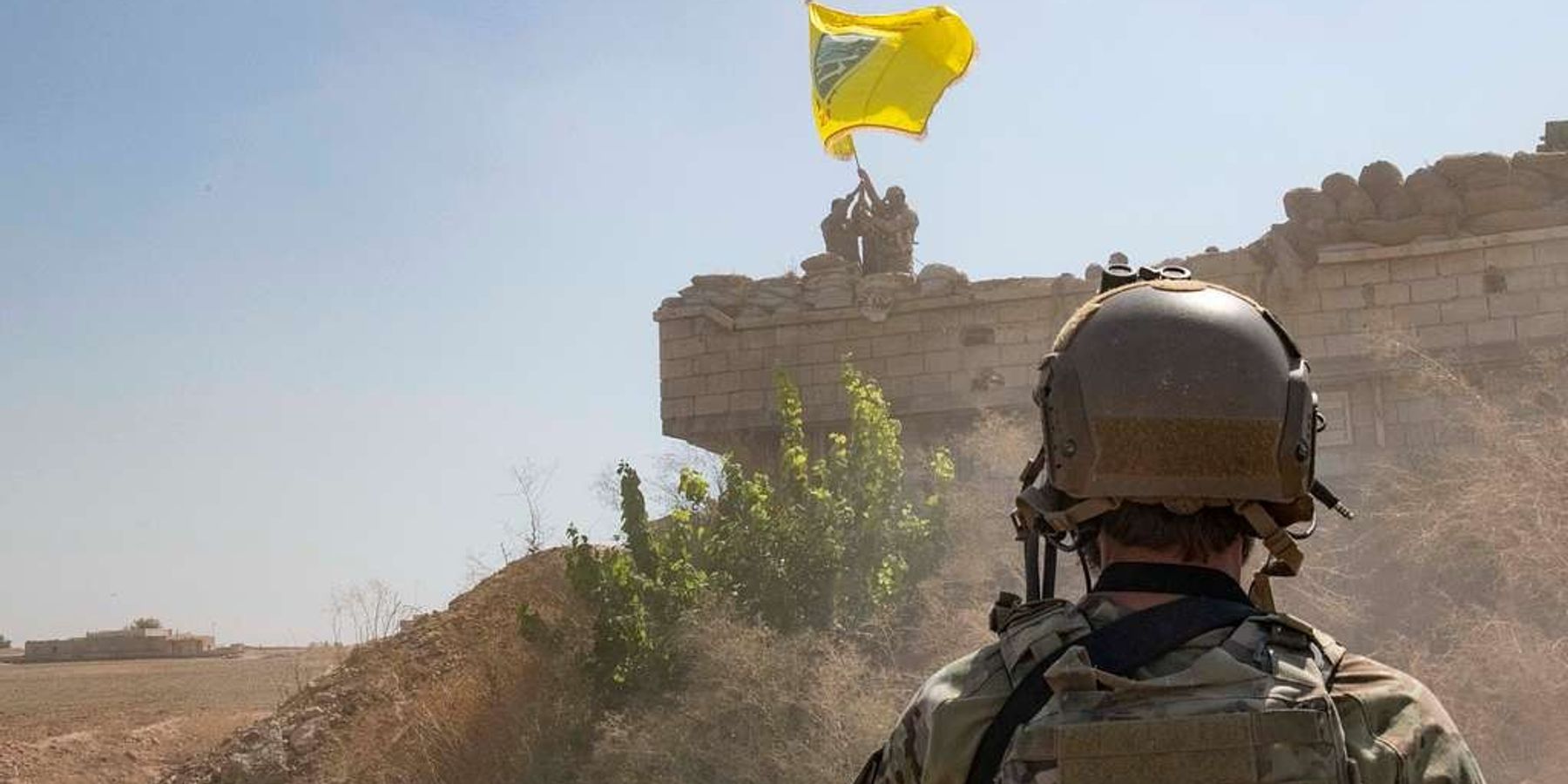A surprise offensive by Islamist, al-Qaida-linked group Hayat Tahrir al Sham (HTS) has forced President Bashar al-Assad out in Syria. In turn, the U.S. is ramping up its long-term involvement in a country already devastated by years of war.
According to a Sunday statement by President Joe Biden, the U.S. has made haste to strike a freshly post-Assad Syria 75 times, allegedly hitting ISIS targets with B-52 bombers and F-15 fighters. “We’re clear-eyed about the fact that ISIS will try and take advantage of any vacuum to reestablish its credibility, and create a safe haven,” Biden explained. “We will not allow that to happen.”
The U.S. has repeatedly struck Syria over the last year, including nine strikes on two allegedly Iran-aligned targets in November. According to U.S. Central Commend (CENTCOM), the strikes were to blunt Iranian backed groups’ capacity to attack U.S. forces combating ISIS in the region.
Meanwhile, an estimated 900 troops are currently stationed in Syria. Deputy Assistant Secretary of Defense for the Middle East Daniel Shapiro said on Sunday that the military presence will be maintained in Syria to prevent an ISIS resurgence. "We are aware that the chaotic and dynamic circumstances on the ground in Syria could give ISIS space to find the ability to become active, to plan external operations, and we're determined to work with those partners to continue to degrade their capabilities," Shapiro said.
Theoretically, U.S. forces are to keep ISIS in check as Shapiro suggests; in practice, U.S. forces also collaborate with the U.S.-backed, Kurdish-led Syrian Democratic Forces (SDF). And while the U.S. insists such collaboration is limited to anti-ISIS efforts, Al Monitor reported that U.S. troops may have assisted an SDF effort to oust pro-Syrian government forces in villages near Deir ez-Zor in an incident last week, which injured two U.S. soldiers.
Altogether, complex circumstances in Syria have indirectly put NATO allies Turkey and the U.S. in contention with one another. Indeed, Turkey has long opposed the U.S. backed SDF’s quasi-independent Kurdish zone in North-Eastern Syria; the New York Times reported that Turkish forces attacked the U.S.-backed SDF troops over the weekend.
Meanwhile, the U.S. has also signaled interest in Syria’s oil. Right now, the SDF occupies Syrian territory in the northeast that incorporates the vast majority of the country's oil fields.
Then-President Donald Trump attempted to withdraw the troops in 2019 but was stonewalled and misled by his Pentagon. Later, he said in a press conference at the White House with Turkish President Recep Tayyip Erdoğan that "we're keeping the oil. We have the oil. The oil is secure," which then translated into a policy of the troops staying in the country to ostensibly secure the oil for the Kurdish SDF and to keep it out of the hands of ISIS. Yesterday posting on Truth Social, he appeared to signal that the U.S. may not even have that interest, anymore. "Syria is a mess, but is not our friend, & THE UNITED STATES SHOULD HAVE NOTHING TO DO WITH IT. THIS IS NOT OUR FIGHT. LET IT PLAY OUT. DO NOT GET INVOLVED!"
Others are in agreement, suggesting it is time for the 900 U.S. military personnel to get out, particularly as ground conditions in Syria are rapidly changing and HTS works to consolidate power.
As retired Lt. Col. Daniel Davis of the Deep Dive podcast tells RS: “100% the first move the United States should make is to get our vulnerable troops out of Syria. They provide no value for the United States, but serve merely as a point of strategic vulnerability. It should’ve ended a long time ago, but definitely should end now.”
Veterans groups are also weighing in. “Instead of recognizing that there are no vital national interests at stake in Syria, President Biden indicated in recent remarks that he intends to double down on a failed strategy by unnecessarily keeping U.S. troops in harm’s way in Eastern Syria,” a joint statement by Americans for Prosperity and Concerned Veterans for America read. “Americans know too well how regime change can lead to endless wars, squandering lives and dollars on interventions that do not serve our national interest.”
- Whose war is the US fighting in Syria, and why? ›
- Under the radar: US troops attacked, launch airstrikes on Syria ›
- Set it off: How US invasion of Iraq led to chaos in Syria today | Responsible Statecraft ›
- DoD denies US military building a new 'base' in Syria | Responsible Statecraft ›
- Trump: 'We're not involved in Syria, they got their own mess' | Responsible Statecraft ›
- If true, Trump move to withdraw US military from Syria is the right one | Responsible Statecraft ›
















